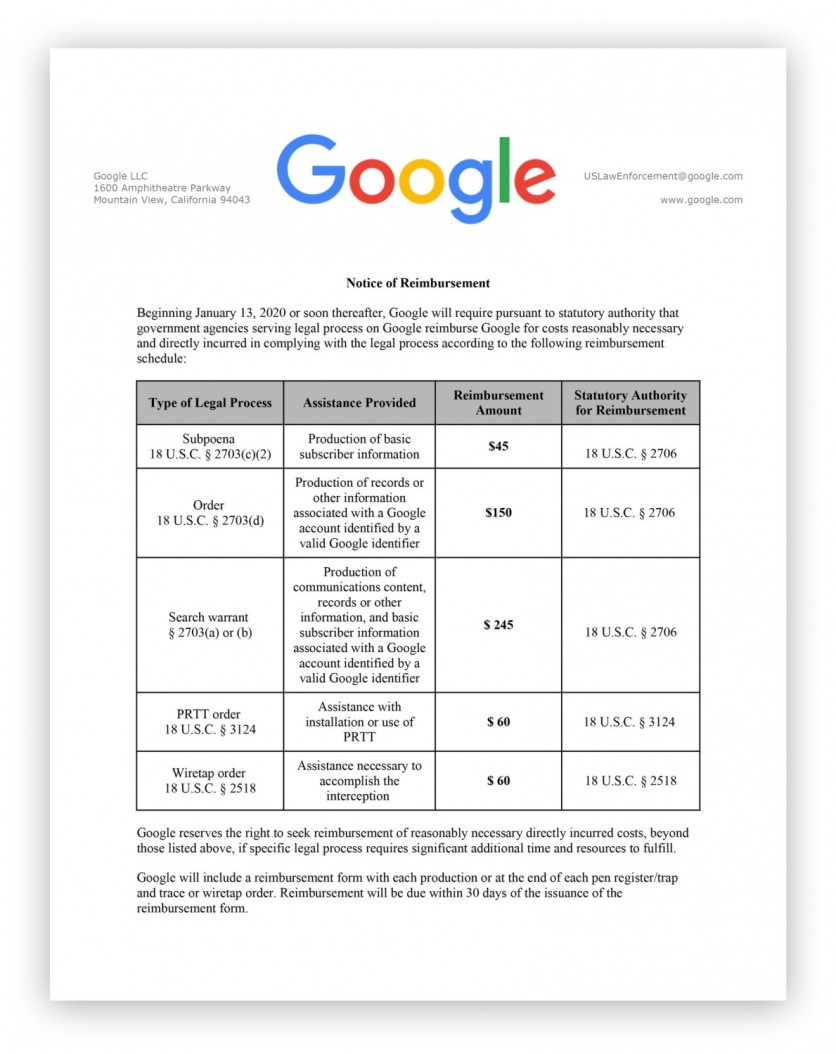
Starting on Jan. 13, Google no longer entertains free-of-charge online requests from the police authorities. If they seek to find out your information, a set of guidelines and fees must be first met in order to have access to anyone's online record.
'Pay first!': Cops now required to pay fees before accessing your Google Documents
On a Jan. 24 New York Times article, Google reportedly put a price tag for cops whenever they wanted to request for specific legal online records from the company.
For example, when a police officer requested a wiretap, he has to pay an exact amount of $60. If it is for a subpoena, it will only cost $45. However, when it is for a search warrant, the fee goes higher up to less than $300.

As reported, Google has been receiving thousands of requests from the authorities when someone is under an investigation. In the United States alone, Google already received over 26,000 online disclosure requests and 11,000 preservation requests or the information that will be set aside once legalities of the search have been completed.
Due to this, the company decided to charge to help 'offset the costs' of producing the said set of information.
"The actual costs of doing wiretaps and responding to search warrants are high, and when you pass those costs on to the government, it deters from excessive surveillance," said Al Gidari, one of the lawyers of Google.
Meanwhile, other legal documents involving "child safety investigations and life-threatening emergencies" will not be part of the charging fees, according to the company.
As explained in Federal Law, companies have the legal rights to charge authorities whenever there are lawful requests such as what Google provides ever since.
In fact, other companies also do the same thing whenever a piece of personal information is needed for an investigation.
Telecommunication companies such as Verizon and Cox also charge police authorities in providing their services. Facebook deliberately said that they are not charging any amount when authorities want to find out personal information about their users. Microsoft and Twitter did not deny nor confirm the said charging fees.
Google does not keep data
Meanwhile, also Gidari clarified that the said fees were not made to keep out authorities from seeking help from Google.
According to him, "None of the services were designed with exfiltrating data for law enforcement in mind."
As also mentioned by the New York Times, there was already an instance wherein Google charged fees for legal documents in 2008. However, after then, there were no more reports of Google charging fees for any legal documents needed by the government.
Is there an impact once google charges police?
Gary Ernsdorff, a senior prosecutor in Washington State, said that there are good and bad sides to the new implementation.
According to him, since fees are now charged to every requested legal document, "officers would have to make decisions when to issue warrants based on their budgets."
However, he also explained that it can also be an advantage for the authorities since Google will now be more effective to release legal documents from their system without taking too much time from the investigation.
ALSO READ: Google Warns About Preinstalled Malware Found In Android Phones
ⓒ 2025 TECHTIMES.com All rights reserved. Do not reproduce without permission.




